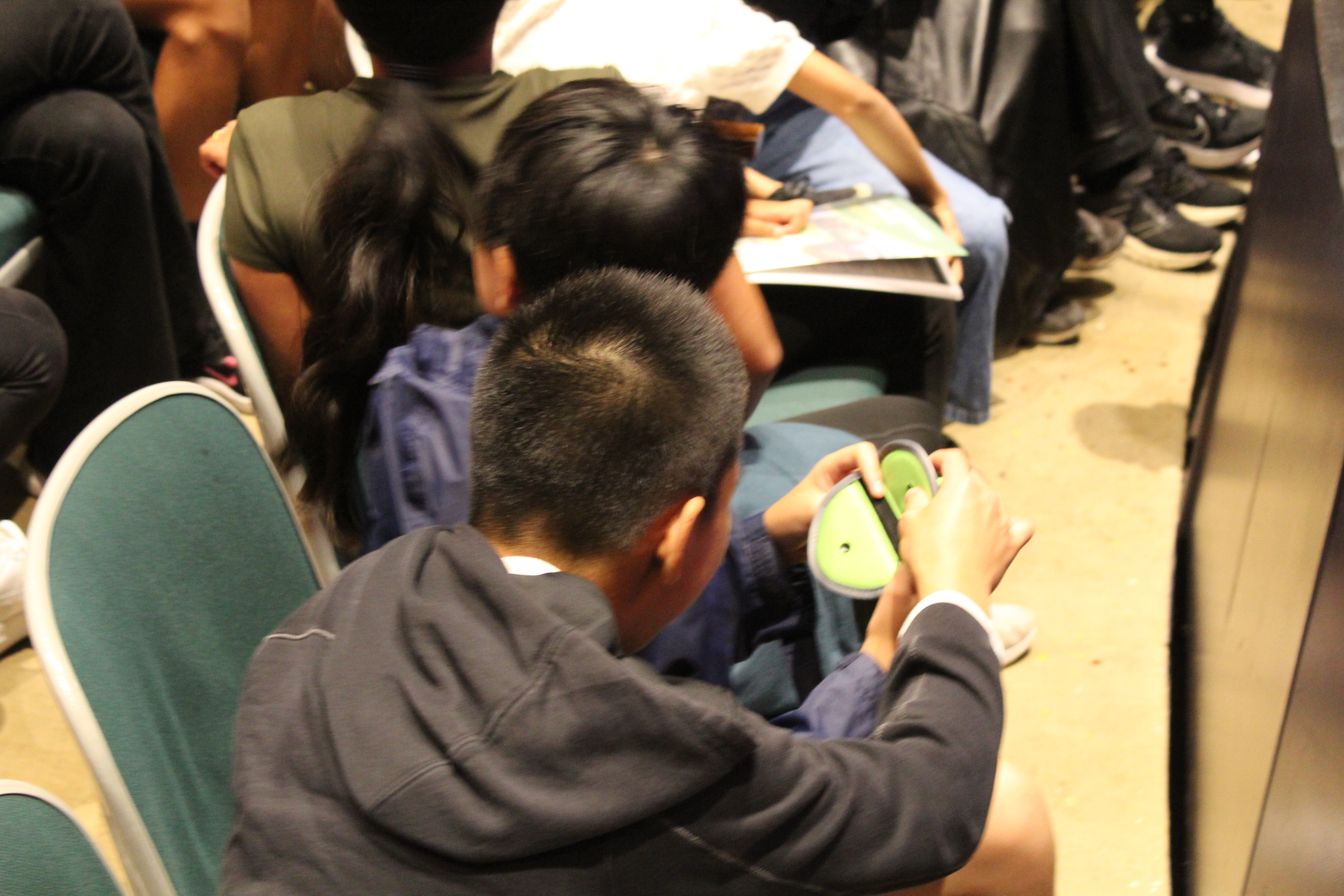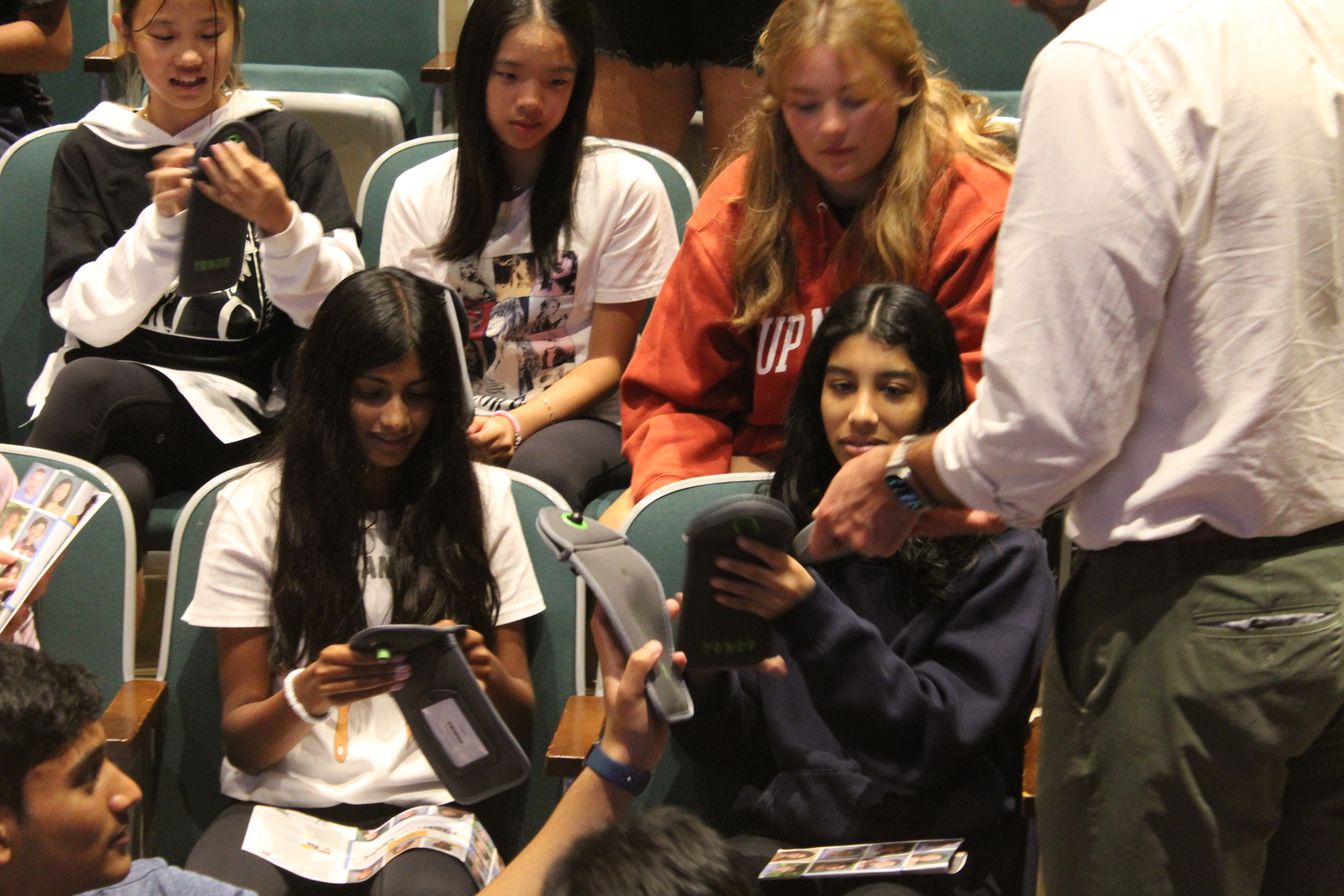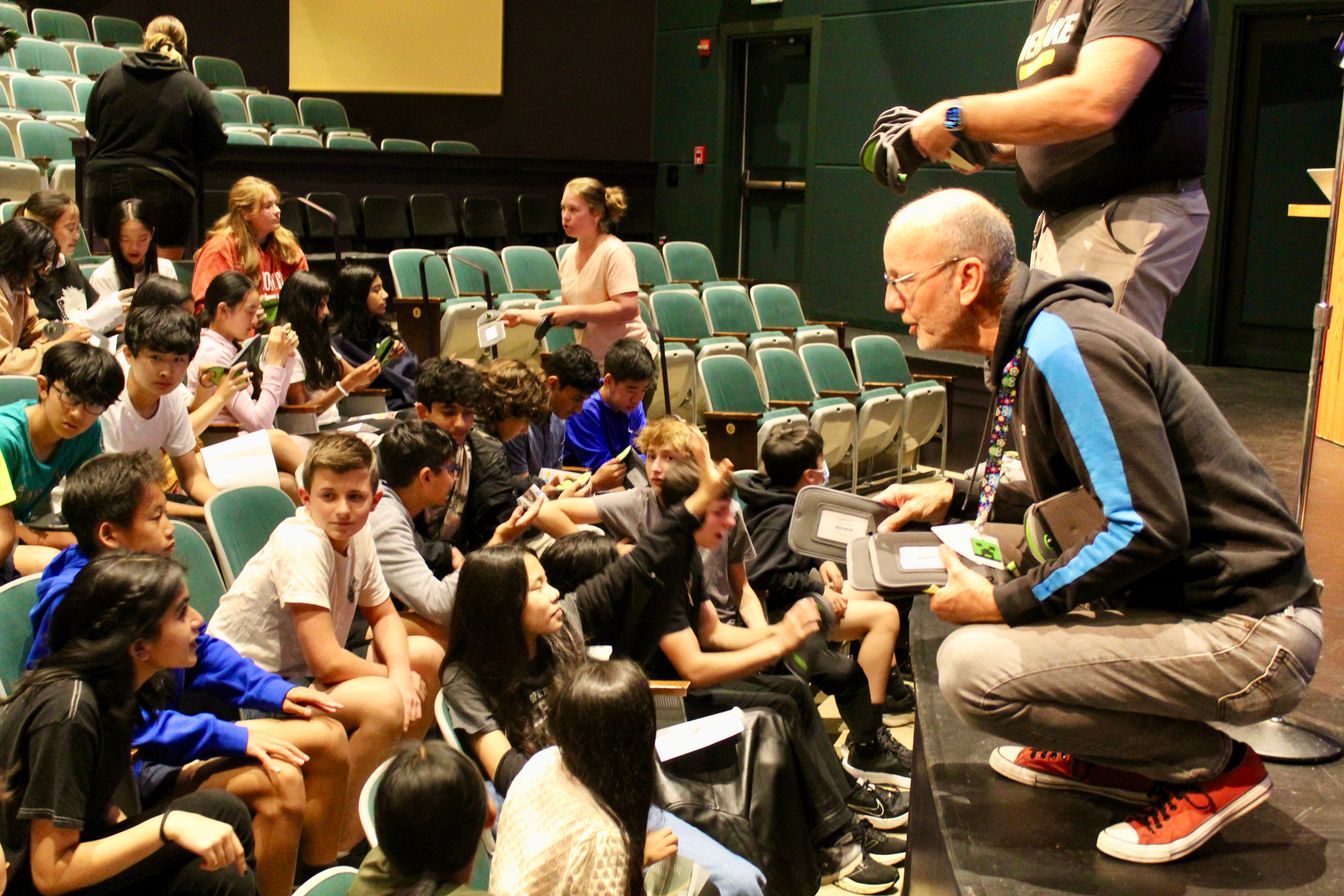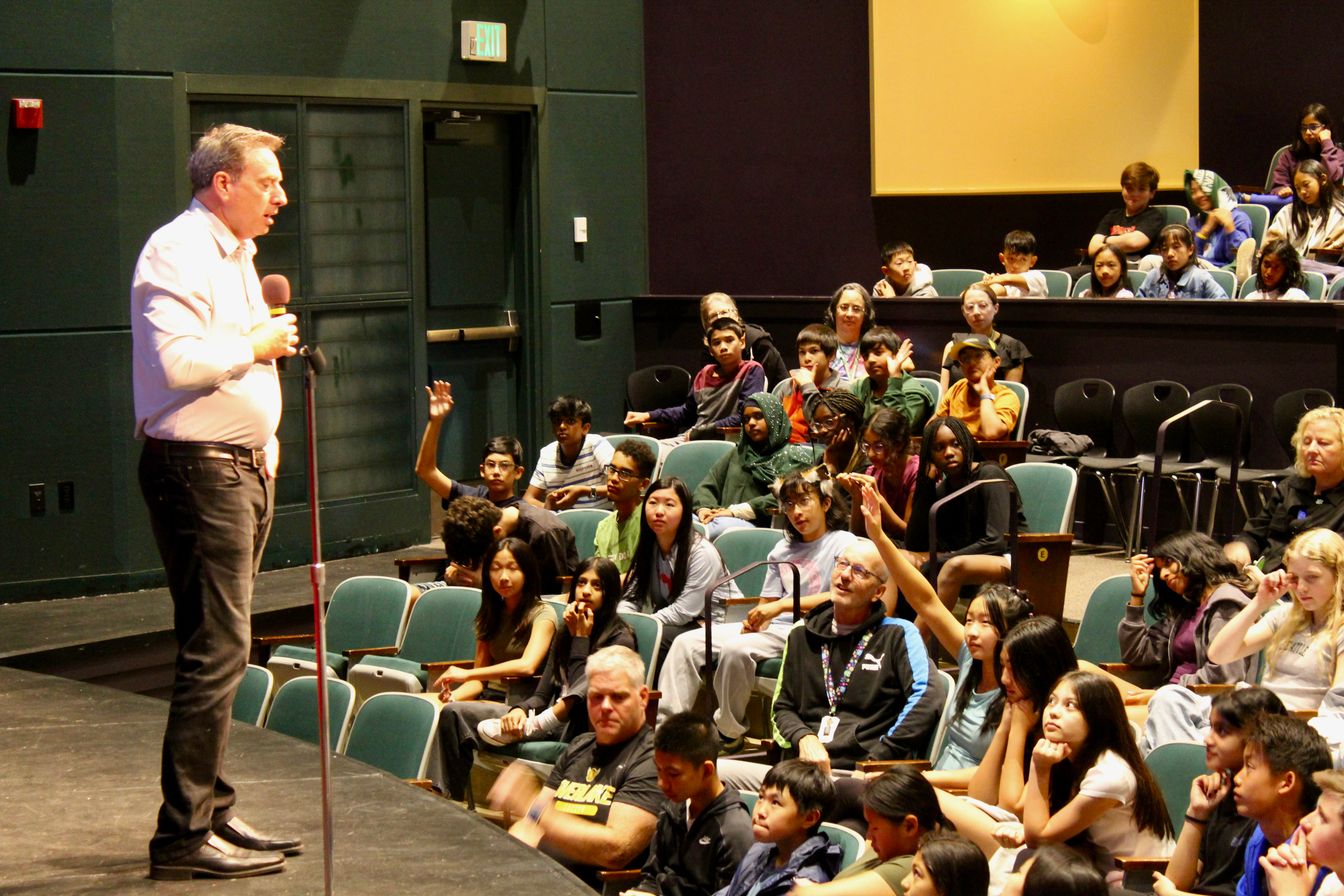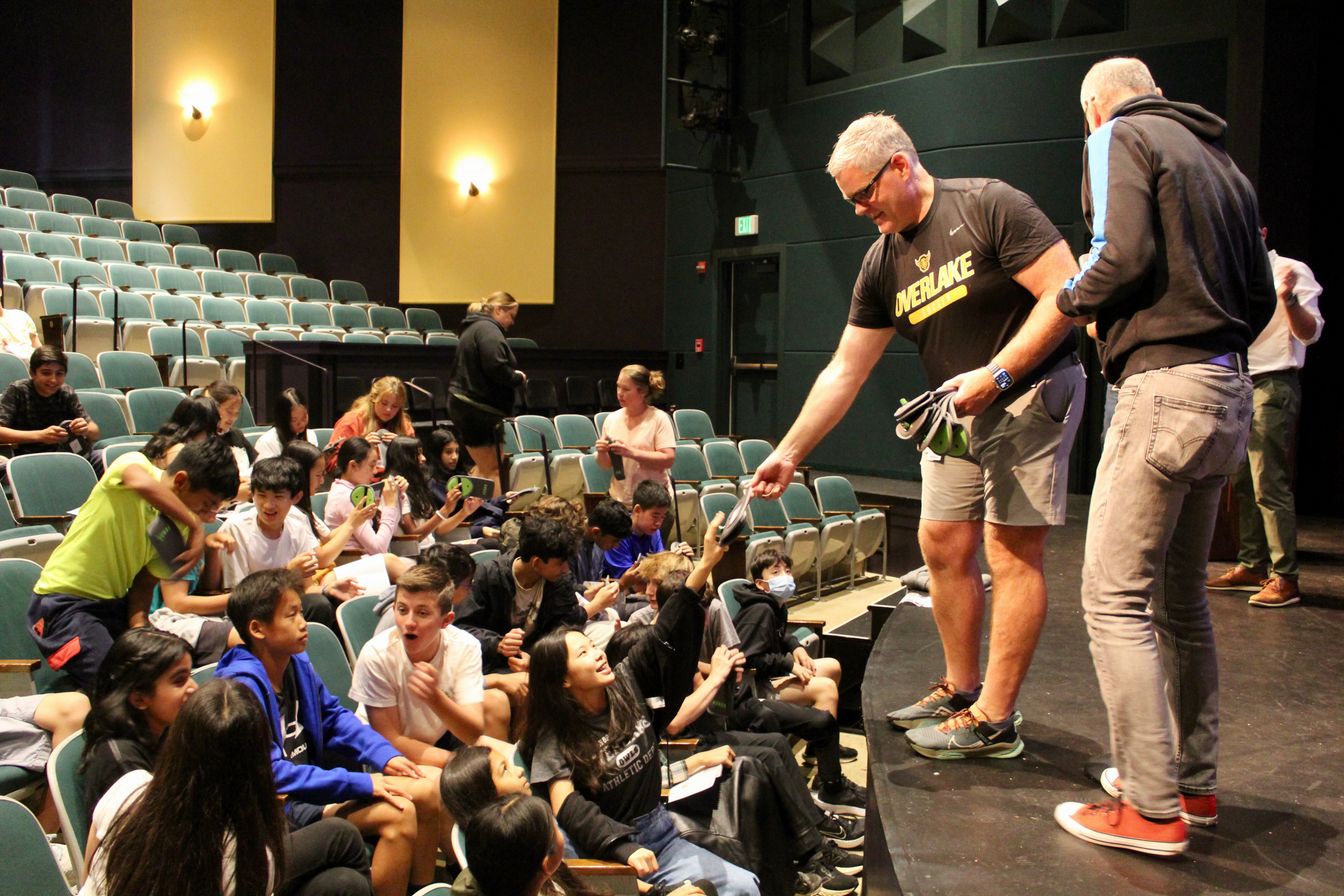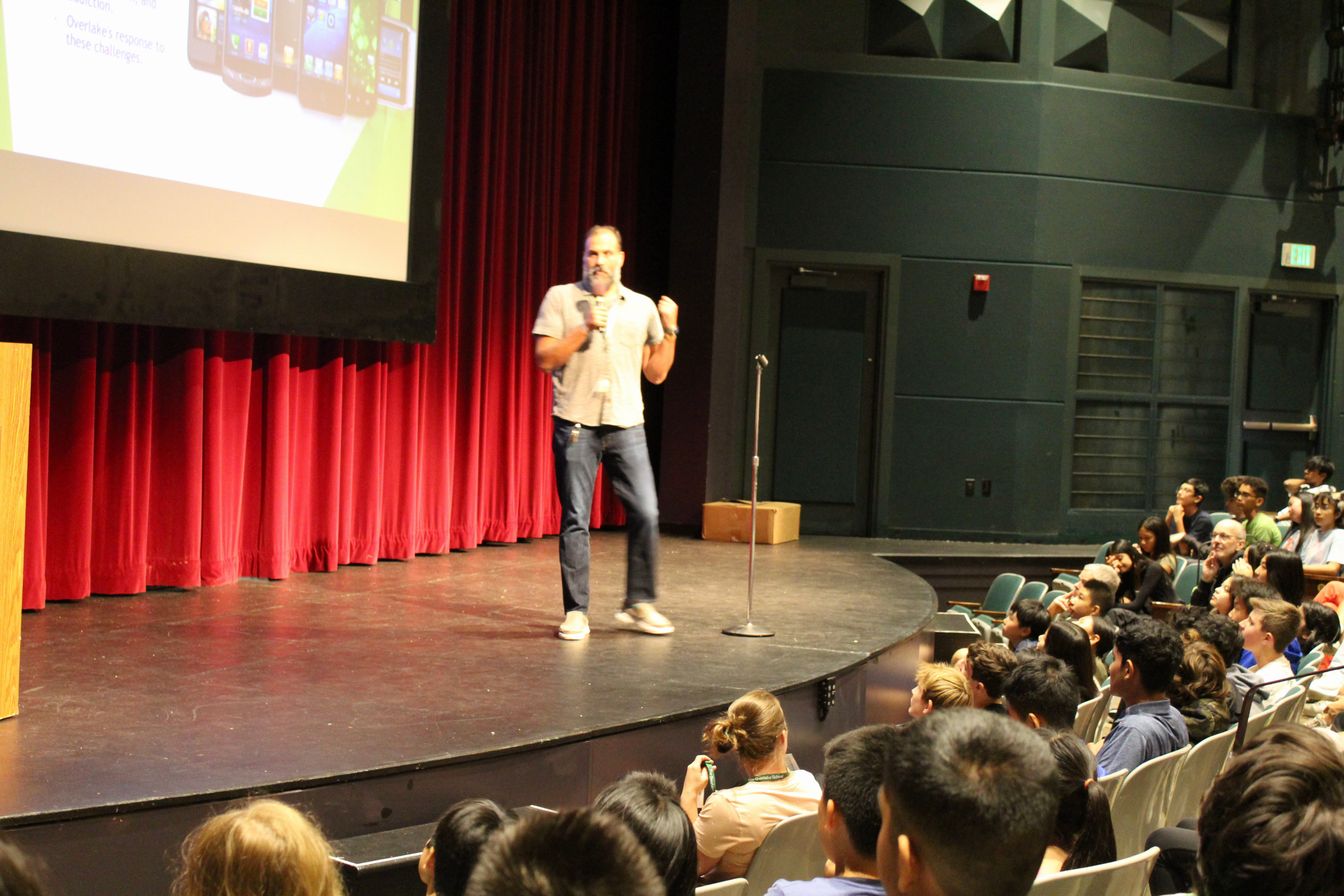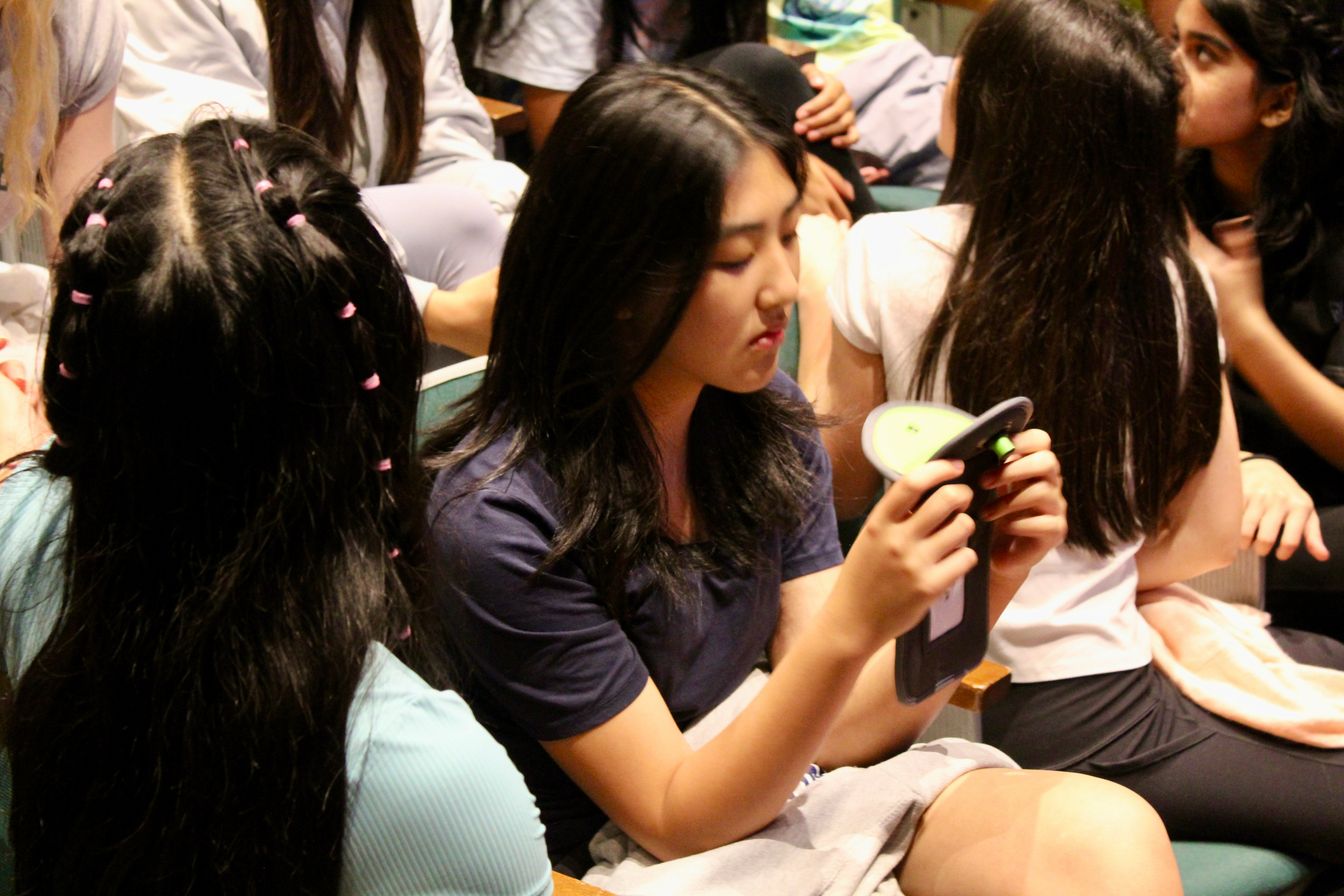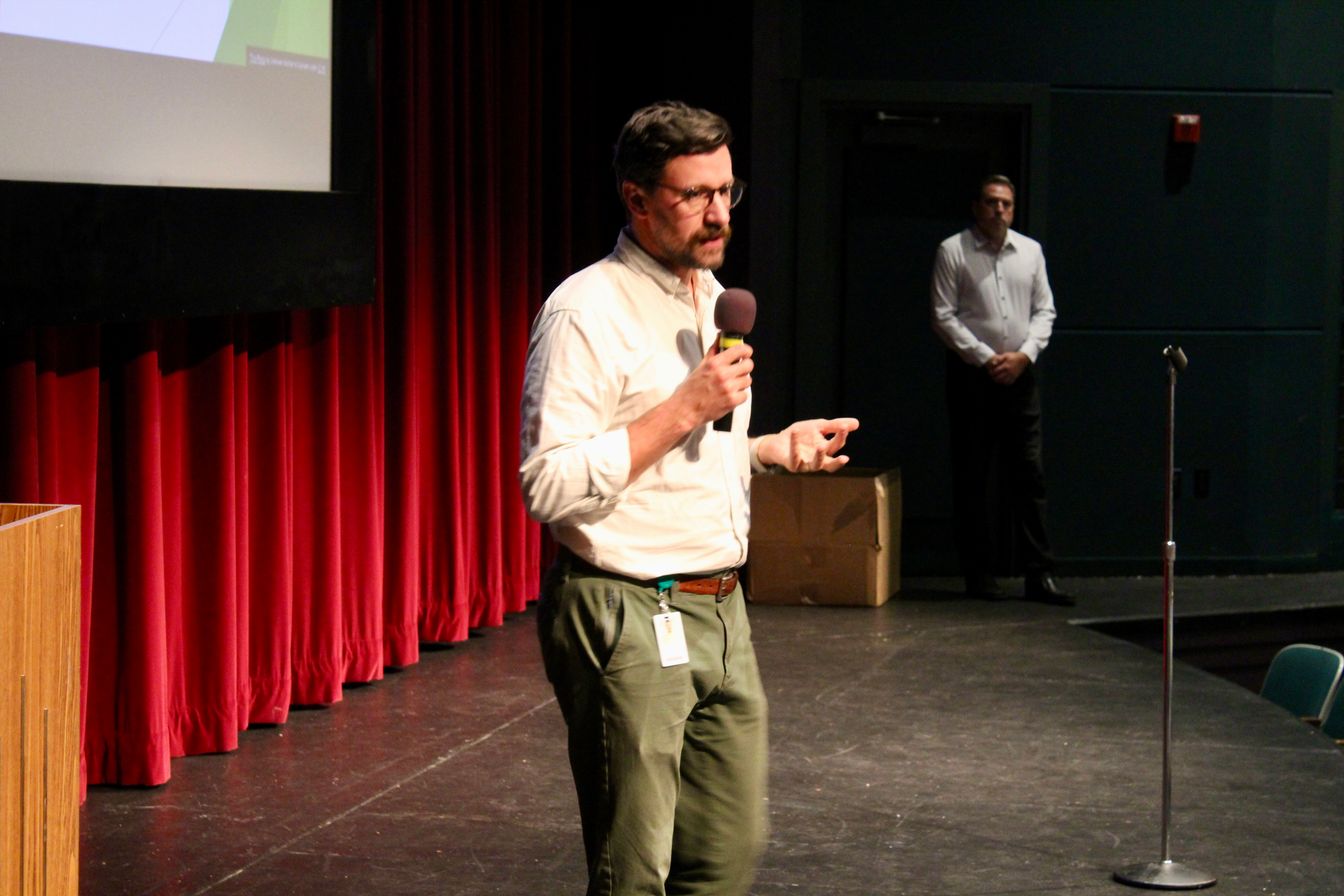- Strategic Plan
- Information Literacy & Technology
A phone free experience for 7th & 8th grades
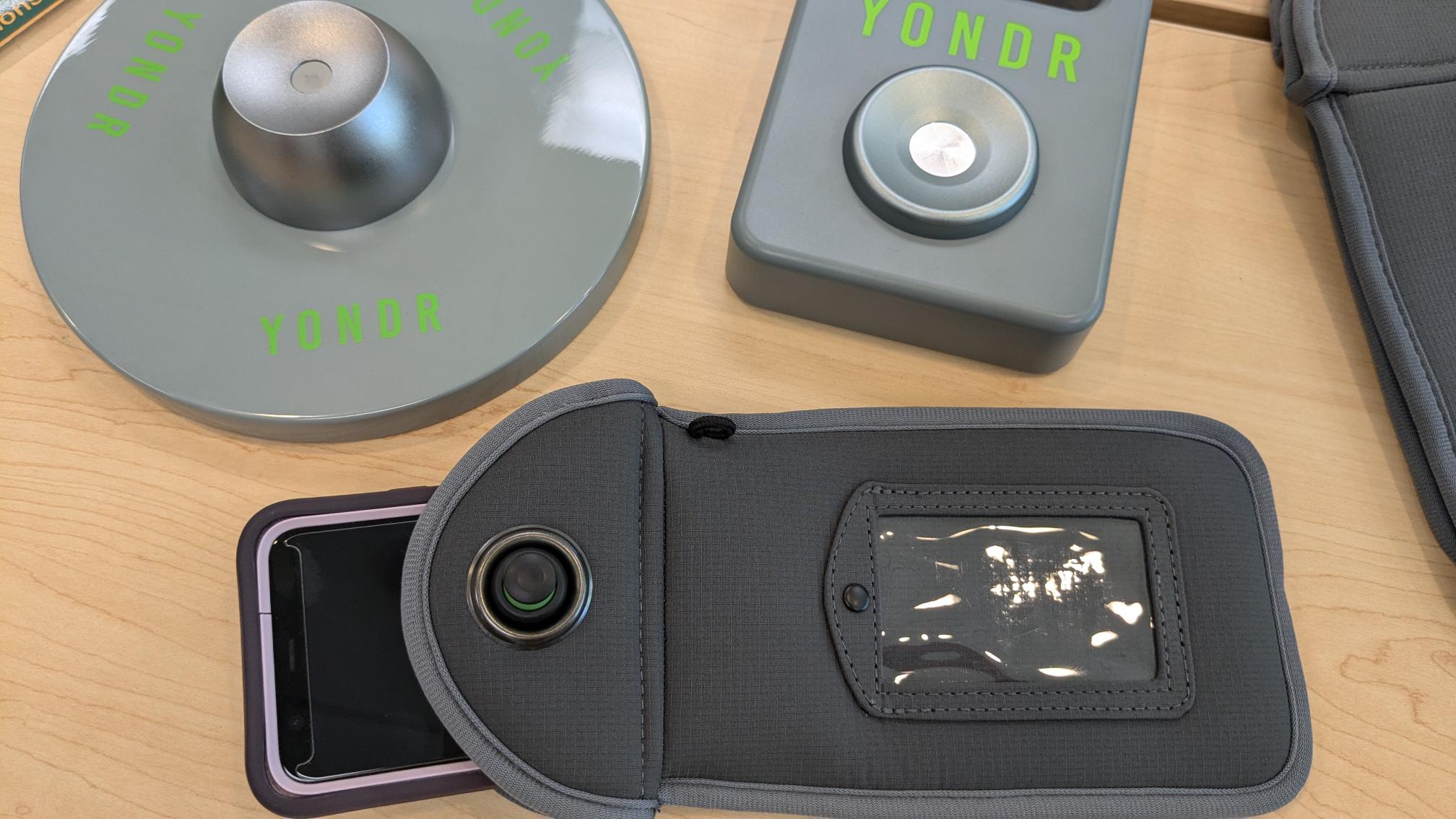
What some might consider an extension of their arm, their cell phone, has now been carefully tucked away from use during the school day for our seventh and eighth-grade students. This week, students in those two grades were given Yondr phone pouches and instructed that these locking bags would be their phone’s “home” during the school day.
“We have always discouraged our students from using their cell phones in classes and that has had varying effectiveness depending on where you find yourself,” explains Jay Heath, Director of Technology, Institutional Research, and Strategic Plan Management.
In particular, Heath and others say returning to school from COVID lockdown, where most students found the only place for social activity was online, has added to our student’s current relationship with phones. And this phenomenon is something all schools are grappling with. “There’s a beginning of a tidal wave of schools that have taken a couple years to reflect upon the role those devices are playing post-COVID and seeing that they have moved to a place that is just not healthy for their kids. It’s not about a power play but taking care of students,” explains Mike Davidson, Middle School Head.
In the developmental phase of middle school, we know that the research points to the smartphone being the gateway to social media where students compare themselves to other students, where body dysmorphia occurs, and the unhealthy things that come out of social media unchecked,” says Heath.
So, this year, a pilot program is underway in Middle School. For fifth and sixth graders, the message around phones stays the same- either leave them at home or keep them in your backpack or cubby throughout the school day. For our seventh and eighth graders, they either keep their phones at home or put them in their own locked Yondr pouch during the school day, until 2:40 pm, when they utilize a device located in various places around campus to unlock their pouch and access their phone.
“It was our students who told us that this was the step we should take,” explains Davidson. “They didn’t know this at the time, but after a Project Week that’s device free they talked about how freeing that was. It changed the way they interacted with each other. And when we surveyed them about their own well-being, they talked about it in our HASS (High Achieving School Survey) survey with what gets in the way of their well-being.” Here is a link to the executive summary of the 2024 HASS survey.
Phone-free events already exist at Overlake. As stated, retreats are a big example of that. “There is purpose and intention in those retreats to strengthen friendships that have been there, or if you’re new to the school, when you leave the retreat, you have a social connection with your homeroom and you likely have a friend you have found a connection with,” says Krishna Davda, Head of Student Experience.
Practicing a better balance with phones is something Davda and the others hope continues at home and beyond our students’ time at Overlake. “Hopefully our students end up with a different set of habits that hopefully spill over in the rest of their lives,” says Davidson.
“It will help them when they leave school, that they will be able to say ‘I’ve done this before. It was hard that first week, but I can do it,’” explains Heath.
And, as this is a pilot program for seventh and eighth grades, students in other grades will surely be watching to see if the Yondr pouches or similar program is headed their way. “We really want their student experience to be rooted in what’s in their best interest and the mission of the school and that’s what we’re always working towards,” says Davda.
“If everybody has a phone and you don’t, it’s isolating. If everyone doesn’t have a phone, it’s connecting,” says Davidson.
Editor's note: For details related to the new pilot program, please read this article provided to students.

